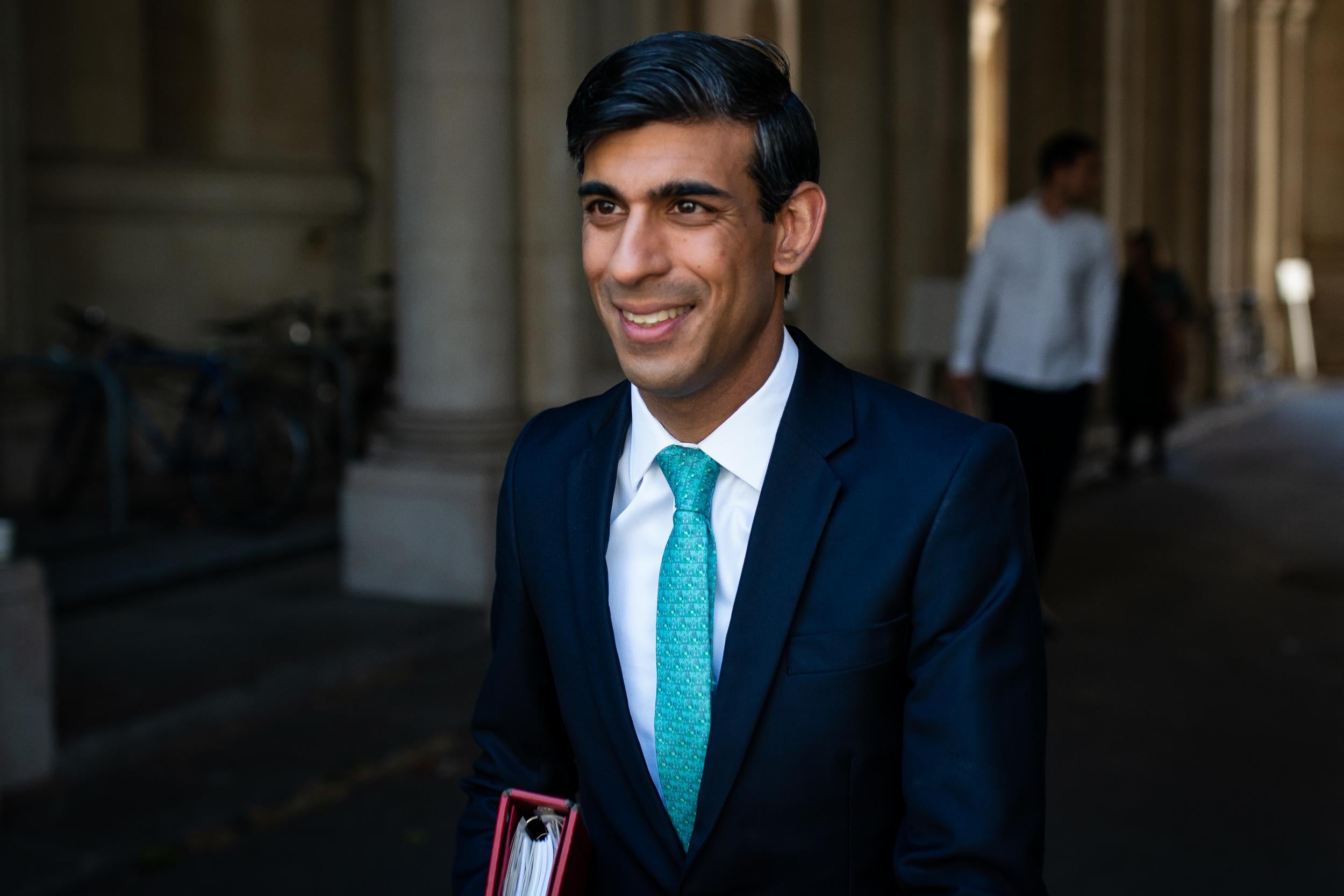Rishi Sunak’s career looks in good shape but our economy doesn’t
Editorial: Our chancellor may have splashed the cash, but he should be worried about the public finances if – perhaps when – a second wave of Covid-19 infections arrives

Rishi Sunak doesn’t seem the type to have sleepless nights. The chancellor has risen without trace, as they say, to become a perfectly credible, if not temptingly attractive alternative to Boris Johnson. Telegenic and coherent, he can “do human”, and though a man of great personal wealth, he seems to be able to grasp the difficulties facing his less well-off fellow citizens. So he has, in career terms at least, a good deal to be cheerful about. After all, everyone loves a chancellor who splashed the cash.
Yet Mr Sunak should be worried about the resilience of the economy and the public finances if – perhaps when – a second wave of Covid-19 infections arrives, and the nation is forced into a second full lockdown. Even with relatively favourable conditions and low interest rates there must be some limit to Britain’s ability to mortgage its future. That, though, is speculative: for now, Mr Sunak has little choice but to be as cheerful as one can be in the circumstances, generous and expansive. He and the country cannot afford an even deeper recession.
The outlook remains fragile, and that is all the more reason to try to support the NHS and protect the economy in the meantime, and restore business and consumer confidence – some of the few variables ministers have some hope of influencing. Some 12 million jobs are dependent on the various pandemic support measures, through “bounce back” loans, tax holidays and other schemes.
There will be some more of that in his emergency mini-Budget, and the announcements look set to win more plaudits. The £1.6bn package for the arts and entertainment was comparatively modest in the big scheme of things, and curiously slow to arrive, but won approval. The new £2bn home insulation scheme is of the same ilk – a smallish sum in macroeconomic terms, but well-targeted, leveraging in householders’ own contributions to the cost, and exceeding expectations. Making Britain’s homes warmer will create jobs rapidly, cut consumers’ bills, reduce CO2 emissions and pump money into the domestic economy.
The Treasury has also indicated other giveaways – cuts in stamp duty, a boost for job centres, a time-limited cut in VAT of 2 or 3 per cent, all of which will be very welcome. However, the chancellor knows the most audacious of his initiatives has also been the most successful, and he should make it clear that he will extend it where necessary. Only with such an underpinning will confidence return. No saving in VAT or handy reduction in stamp duty will persuade anyone to go out and spend or move house if they judge that they’re about to lose their job.
Mr Sunak has shown a sure touch during this crisis, thrown into sharp relief when set against the blundering of so many of his colleagues. He has some cause for optimism, but a return by this time next year to the real crushing hardships of mass unemployment last seen in the 1980s is an all-too-real possibility.
By the look of things, a no-deal Brexit and collapse in investment and important export sectors can only make things worse. There’s plenty to worry about in the Treasury.
Join our commenting forum
Join thought-provoking conversations, follow other Independent readers and see their replies
Comments